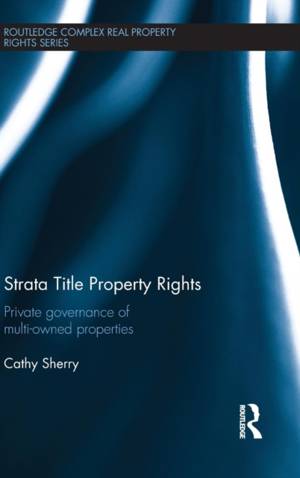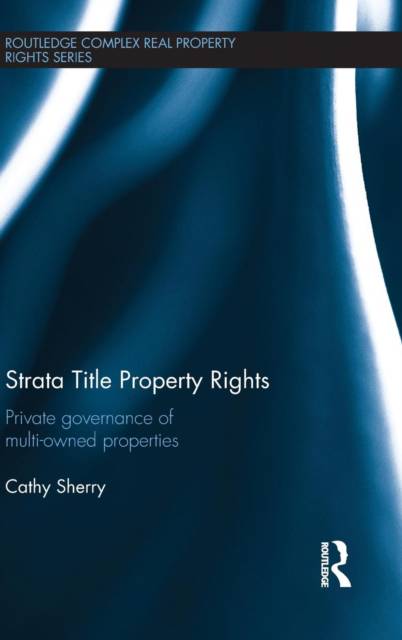
- Retrait gratuit dans votre magasin Club
- 7.000.000 titres dans notre catalogue
- Payer en toute sécurité
- Toujours un magasin près de chez vous
- Retrait gratuit dans votre magasin Club
- 7.000.0000 titres dans notre catalogue
- Payer en toute sécurité
- Toujours un magasin près de chez vous
Description
Multi-owned properties make up an ever-increasing proportion of commercial, tourist and residential development, in both urban and rural landscapes around the world. This book critically analyses the legal, social and economic complexities of strata or community title schemes. At a time when countries such as Australia and the United States turn ever larger areas into strata title/condominiums and community title/homeowner associations, this book shows how governments, the judiciary and citizens need to better understand the ramifications of these private communities.
Whilst most strata title analysis has been technical, focusing on specific sections of legislation, this book provides higher level analysis, discussing the wider economic, social and political implications of Australia's strata and community title law. In particular, the book argues that private by-laws, however desirable to initial parties, are often economically inefficient and socially regressive when enforced against an ever-changing group of owners. The book will be of particular interest to scholars and legal practitioners of property law in Australia, but as the Australian strata title model has formed the basis for legislation in many countries, the book draws out lessons and analysis that will be of use to those studying privately-owned communities across the world.
Spécifications
Parties prenantes
- Auteur(s) :
- Editeur:
Contenu
- Nombre de pages :
- 270
- Langue:
- Anglais
- Collection :
Caractéristiques
- EAN:
- 9781138914926
- Date de parution :
- 13-12-16
- Format:
- Livre relié
- Format numérique:
- Genaaid
- Dimensions :
- 155 mm x 231 mm
- Poids :
- 544 g

Les avis
Nous publions uniquement les avis qui respectent les conditions requises. Consultez nos conditions pour les avis.






